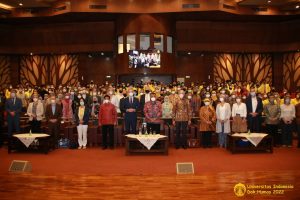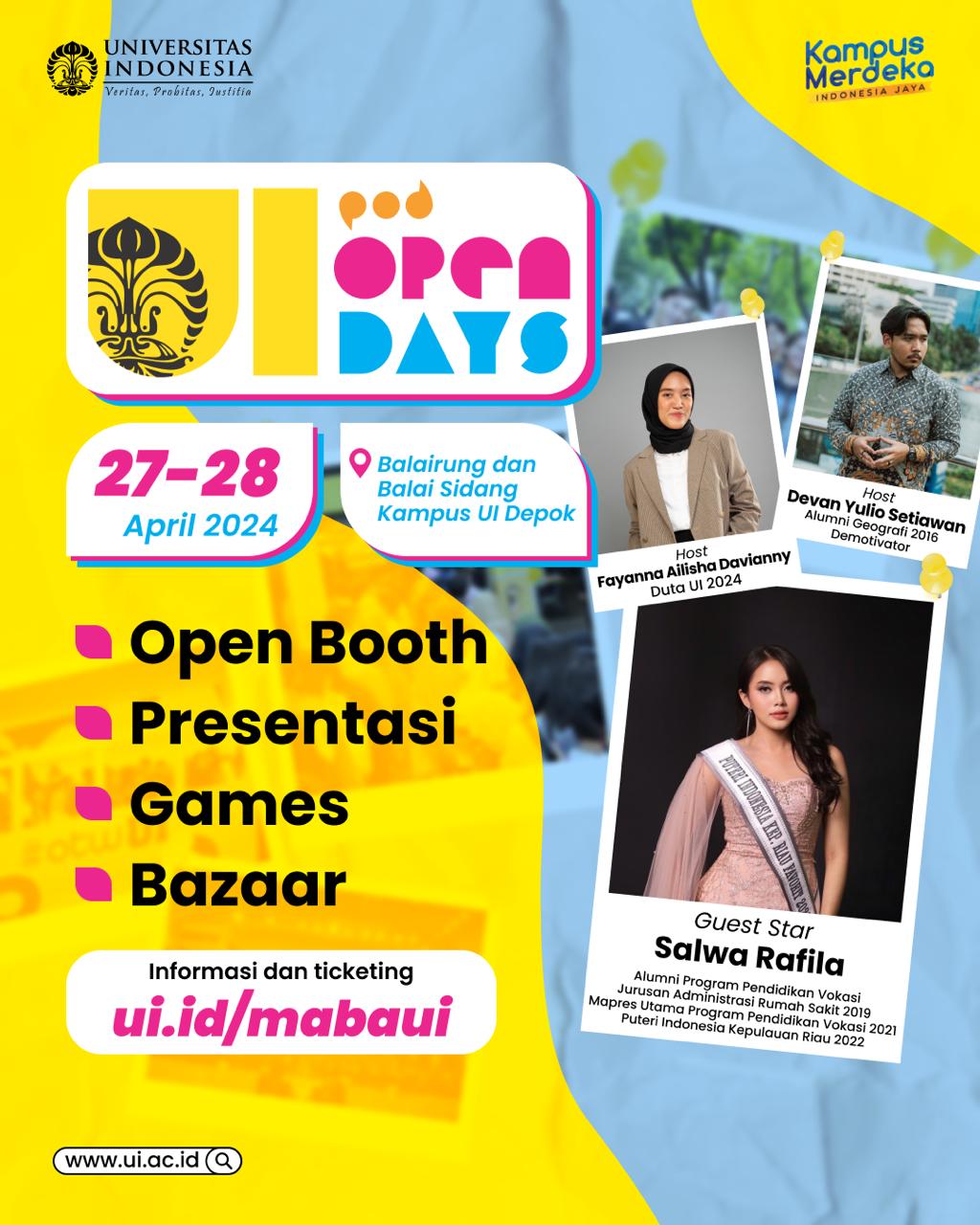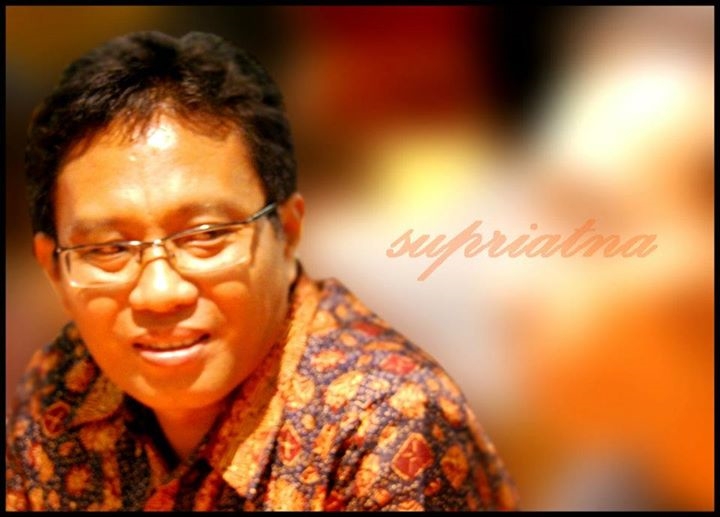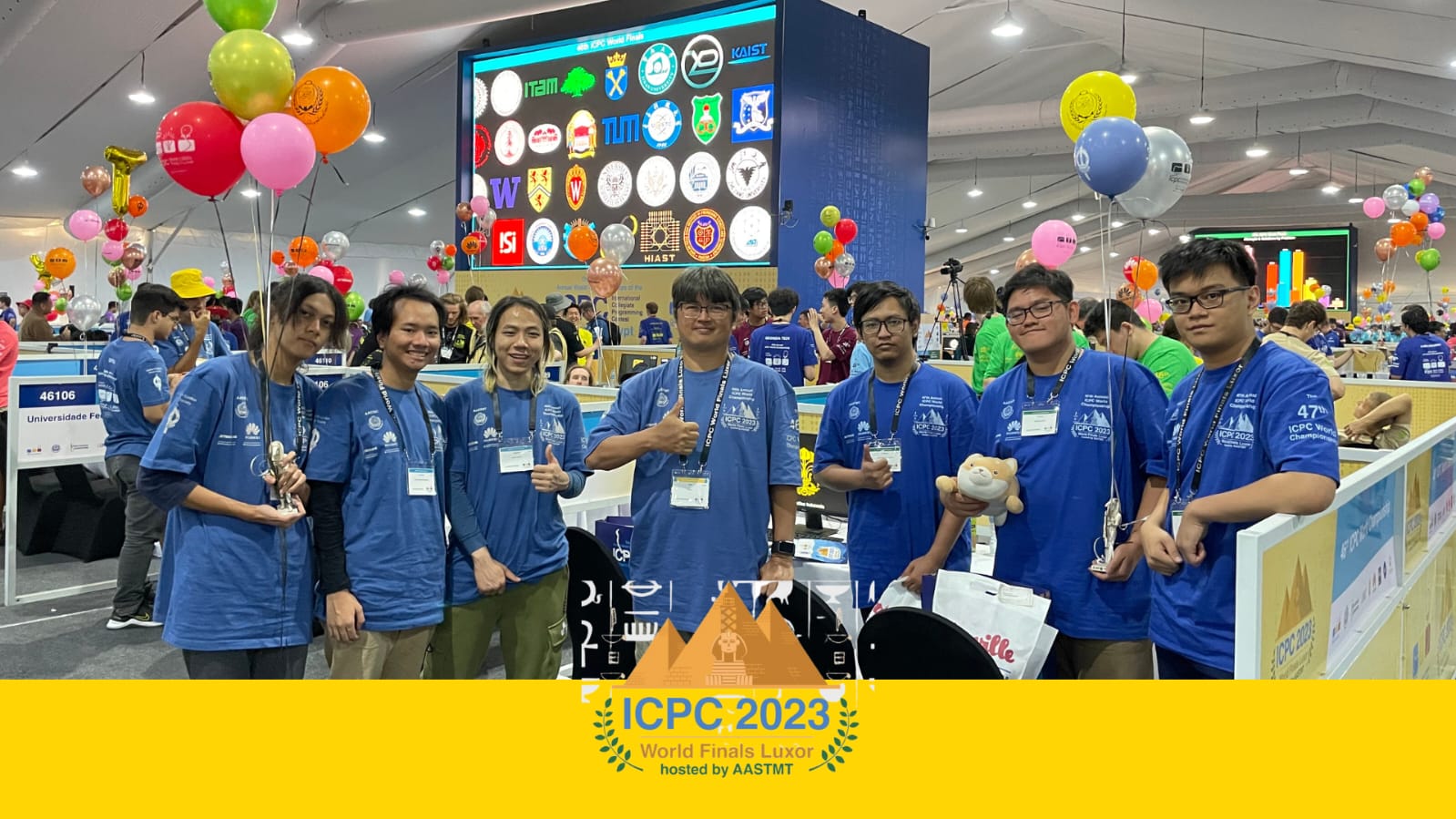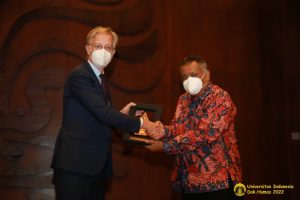
Universitas Indonesia (UI) held a public lecture with the Dutch Minister of Education, Culture and Science, Robbert Dijkgraaf, on Friday (22/7). The lecture entitled “Making Lives Better: Giving Opportunities to Knowledge” was held at the Universitas Indonesia Convention Center and broadcast live through UI’s official Youtube account. This lecture reviews self-development strategies to grow knowledge in overcoming global problems that exist in society.
Present at the event, the Rector of Universitas Indonesia, Prof. Ari Kuncoro, S.E., M.A., Ph.D.; Secretary of the University UI, dr. Agustin Kusumayati, M.Sc., Ph.D; Universitas Indonesia Vice Chancellor for Academic and Student Affairs, Prof. Dr. rer. grout. Abdul Haris; Ambassador of the Kingdom of the Netherlands to the Republic of Indonesia, Lambert Grijns;
The Chancellor of the International Institute of Social Studies, The Hague, Erasmus University Rotterdam, Prof. dr. (Inge) I Hutter; a delegation from the Netherlands consisting of leaders of universities and institutions; the deans and directors in the Universitas Indonesia environment; and dozens of Universitas Indonesia’s students. In his welcoming speech, Prof. Ari said that Indonesia’s involvement in the implementation of the G20 Presidency brings out the full potential of global collaboration and brings Indonesia to the reality related to global problems faced by mankind. As a higher education institution, Universitas Indonesia believes that collaboration in the fields of knowledge, research, science, and culture with partners from all over the world can be a medium in overcoming these challenges.
The collaboration between Universitas Indonesia and the Netherlands is one form of this collaboration. Universitas Indonesia has collaborated with 26 Dutch institutions covering many schemes, including double degree programs, student and staff exchanges, to conduct joint research. “This collaboration is expected to foster a spirit of mutual understanding and open up new opportunities. Students and researchers involved are also expected to be able to understand the problems around them in a different perspective. It is important to provide research that has an impact on society. Therefore, building connections is the key to strengthening the network in collaboration,” said Prof. Ari.
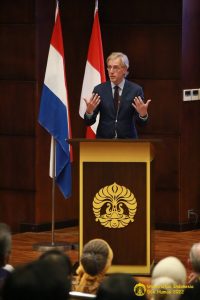
Robbert Dijkgraaf on that occasion emphasized the importance of utilizing knowledge as an effort to create a better life. There are four main keys mentioned by Dijkgraaf to achieve this goal, namely a strong relationship between science and society, collaboration of basic research and fundamental research, utility and application of knowledge, and international cooperation.
According to Dijkgraaf, to create a strong relationship between science and society, scientific research must be applicable in society. Researchers must consider the needs of the community when determining research topics. This is intended so that the research carried out is useful and on target so that the distance between the community and researchers can be eliminated. In addition, collaboration between the government, industry, and non-governmental organizations is also needed to develop research results so that the benefits can be widely distributed.
A study should also consider related studies conducted previously. This inter-research elaboration allows for a major transformation of a finding. Researchers can sort out which research results are useful and which are not, so that further research should be based on research findings that are beneficial to the wider community. Researchers do not only focus on academic research, but also research that is useful to answer various global problems.
The last point highlighted by Dijkgraaf is the need for international cooperation. Global problems require researchers to create universally applicable solutions. This can be achieved through collaboration between researchers around the world. Student exchanges and research collaborations allow for a global experience gained by academics so that they can exchange experiences based on different national backgrounds.
“There are two things that a person has that make him a strong human being, namely imagination and curiosity. With imagination, one can imagine things that might happen in the future through experiences that happened in the past. Meanwhile, with curiosity, someone will be interested in knowing more about the things they are involved in until someone becomes an expert in their field,” said Dijkgraaf.
